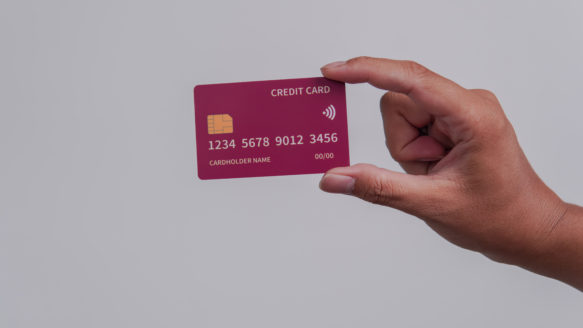
Saying “No” Can Save You Money: 10 Compassionate Ways to Prioritize Your Finances
As social beings, it’s natural to want to say “yes” to every invitation or opportunity that comes our way. The fear of missing out (FOMO) often leads us to make choices that may not align with our financial well-being. But learning to say “no” can be a powerful step toward achieving your financial goals and reducing stress. Talking about money might feel uncomfortable, but open conversations can strengthen relationships and provide much-needed support. If you’re navigating financial challenges, you’re not alone.
Here are 10 compassionate tips to help you say “no” without guilt and prioritize your financial health.
- Be Honest About Your Financial Goals
- Suggest Budget-Friendly Alternatives
- Practice Saying “No” Gracefully
- Plan Ahead and Budget for Social Activities
- Reflect on Your Spending Triggers
- Recognize and Resist Peer Pressure
- Engage in Activities That Don’t Involve Spending
- Set Boundaries and Stick to Them
- Say “No” to Yourself (or Remind Yourself of Your “Why”)
- Seek Support When Needed
Sharing your financial aspirations with loved ones can be empowering. For example, if you’re saving for a home, you might say, “I’m saving for a down payment right now, so I’m cutting back on extra expenses.” This transparency helps others understand your situation and may even inspire them to share their own goals. Need help setting goals? Check out our guide on How to Set SMART Financial Goals (& Keep Them!). Setting specific, measurable, achievable, relevant, and time-bound goals can make your financial journey more manageable.
Instead of declining an invitation outright, propose a more affordable option. For instance, if friends invite you to an expensive concert, you could suggest attending a local music festival or an open mic that’s free or low-cost. This way, you still enjoy quality time together without straining your budget. Try money-saving apps and websites to find deals or low-cost options that fit your lifestyle. For more ideas, explore 10 Creative Ways to Have Fun on a Budget. Activities like game nights, hiking, or visiting a museum on free admission days can be both enjoyable and economical.
It’s okay to say “no,” and with practice, it becomes easier. You might respond with, “Thanks for thinking of me, but I’ll have to pass this time.” Keeping your response simple and sincere can alleviate pressure. Remember, you don’t owe anyone a detailed explanation. If resisting spending temptations is challenging, read How to Stop Spending Money for strategies to stay on track.
Allocating a portion of your budget to social events allows you to participate without derailing your finances. For example, setting aside $50 a month for outings lets you enjoy time with friends while staying within your means. Take advantage of discounts, coupons, or early-bird specials to reduce costs. Websites and apps often offer deals on restaurants, movies, and events. If an event exceeds your budget, you’ll know ahead of time and can make informed decisions. Need assistance with budgeting? Our article on 5 Simple Steps for Creating a Budget & Maintaining It can guide you through the process.
Understanding why it’s hard to say “no” can help you make choices aligned with your goals. Perhaps you feel obligated to keep up with friends who have different financial situations. Recognizing this can empower you to set boundaries. For example, if dining out frequently strains your budget, suggest meeting for coffee instead. Learn how everyday expenses can add up in How Small Things (Like Coffee) Are Hurting Your Budget. Being mindful of small purchases can make a big difference.
Peer pressure can significantly impact your spending habits. If you find yourself saying “yes” to avoid disappointing others, it’s important to remember that true friends will respect your decisions. Practice assertiveness by politely declining invitations that don’t align with your financial goals. For example, you might say, “I appreciate the invite, but I’m trying to be mindful of my spending right now.” Resist the urge to buy things just because your friends are. For tips on resisting temptation , read Buyer’s Remorse: How to Stop Buying Things I Regret. Understanding the influence of peer pressure can help you make more intentional choices.
Suggest activities that focus on connection rather than consumption. Organize a book club, start a walking group, or host a potluck dinner. Ask your friends to join you on a ‘No-spend Challenge’ and find free activities like outdoor movies or art walks. These activities provide entertainment and foster relationships without the pressure to spend money. For inspiration on saving while enjoying life, read 5 Fresh Ways to Save Money.
Establishing financial boundaries is essential. If coworkers often invite you to pricey lunches, consider packing your own and inviting them to join you in a common area. Politely explaining that you’re watching your spending can encourage others to be supportive. Learn about managing finances in relationships in 3 Common Ways to Manage Money in a Relationship. Open communication is key to mutual understanding.
Often, we can be our own worst enemies when it comes to spending money. We derail our own financial goals by forgetting about our future plans. Reminding ourselves of “why” we’re spending less can make it easier to say no. It can be helpful to have a picture of our goal in a prominent place to remind us of it in moments of weakness. For example, if you’re saving up for a vehicle, trip or home, find a picture to display in your bathroom while brushing your teeth or in your office to keep you focused on the end goal.
If financial stress feels overwhelming, reaching out for professional help can provide relief. Financial counsellors offer guidance tailored to your situation. For example, they can help you create a debt repayment plan or find resources to manage expenses. Discover strategies to manage financial anxiety in How to Stop Stressing About Money & Avoid Burnout. Remember, seeking help is a sign of strength, not weakness.
Saying “no” is not about deprivation; it’s about making choices that align with your priorities to help you save money. By communicating openly and setting clear boundaries, you can nurture your relationships while staying true to your financial goals. Your friends and family may even appreciate your honesty and feel inspired to reassess their own spending habits.
If you’re looking for more financial resources to support your journey, visit our Money Tips blog. We’re committed to helping you achieve financial well-being.
Additional Resources:
- 8 Tips to Cut Expenses & Manage Money in Difficult Times
- Buyer’s Remorse: How to Stop Buying Things I Regret
- Your Mental Health is Important
- How to Talk About Your Finances
Taking care of your finances is a form of self-care. By learning to say “no” when necessary, you’re saying “yes” to a healthier, more secure future. Remember, every small step you take brings you closer to your financial goals. You deserve the freedom that comes with financial stability.

Have questions?
Need more information or want to talk to a certified financial counsellor for peace of mind? Let us help.
Call 1-888-294-0076 or book an appointment. It’s free for all Albertans.







